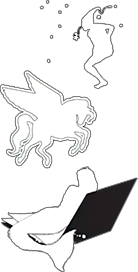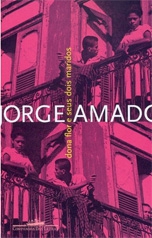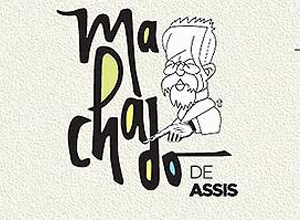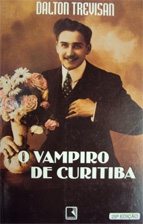Brazilian team in Frankfurt
Doris Dias
Begin to emerge the first evaluations of Brazilian participation in the largest book fair in the world. Contracts between national writers and Amazon and publishers buying copyrights twice compared to 2010 are reported, but the result goes beyond the book business and is the image of the country that emerges renewed.
In addition to breaking the record for the realization of parallel events with the presence of Brazilian art in several areas of the city, were the controversies,...
Begin to emerge the first evaluations of Brazilian participation in the largest book fair in the world. Contracts between national writers and Amazon and publishers buying copyrights twice compared to 2010 are reported, but the result goes beyond the book business and is the image of the country that emerges renewed.
In addition to breaking the record for the realization of parallel events with the presence of Brazilian art in several areas of the city, were the controversies, there and here (the opening speech, the criticism to the official list of guest writers, the giving up of Paulo Coelho and the imbroglio of unauthorized biographies), that most resonated. Apparently, the less folkloric Brazil's performance was successful.
See below for some texts distributed in the Brazilian pavilion at the Frankfurt Book Fair in 2013.
Dona Flor (Dona Flor and her two husbands, by Jorge Amado, 1912-2001)
Florípedes Paiva, best known as Dona Flor, is one of the most famous characters created by Jorge Amado and as important as the title characters of Gabriela, Clove and Cinnamon (1958), Tereza Batista: Home from the Wars (1972) and Tieta (1977). She is torn between her lascivious first marriage and her stable and conservative second one. Dona Flor ends up – through near supernatural fantasies – delivering a mixture of crafty erotic impulses and courteous manners, representative traits of Brazilian sociability.
Excerpt from Dona Flor and her two husbands:
Vadinho, dona Flor’s first husband, died on the Sunday morning of Carnival, dressed up as a baiana. Dancing on the parade, under biggest frenzy, not far from his house on the Dois de Julho Square […] Dona Flor had Ms Norma before her, giving orders and making way. When she arrived at the corner, conforted by the girls, they all guessed her to be the widow. She came sighing and groaning, not bothered to try and control her sobbing, broken into tears. Moreover, she wore a shabby robe used for cleaning the house, slippers with a cat’s face on it, and had an untidy, disheveled hair. She was, nevertheless, beautiful and pleasing to the eye. Small and chubby, she was fat but not flaccid, tanned and with very straight and dark hair – so dark it seemed like midnight blue -, languid eyes and full lips, slightly opened over her white teeth. Appetising, Vadinho would call her on his rare but unforgettable days of tenderness.
Fabiano (Barren Lives, by Graciliano Ramos, 1892-1953)
Fabiano lives in the social hell of Brazil. He is the head of a family made up by him, his wife Sinhá Vitória, their two sons and their dog Baleia. Skinny, crude, insecure, superstitious and incapable of expressing his thoughts, the backland admires those who have the gift of words. Tormented by the misery that plagues the northeastern backlands of Brazil, he sees himself more of an animal than a man. But it is through a rude, mineral speech that he emits (and from which he finds himself alienated), that blossoms a character of tragic proportions, and at the same time reduced to the bone of pure existence, without essence and transcendence.
Excerpt from Barren Lives:
They reached the top. And Fabiano laid down part of the load, looked up to the sky, his hands shielding the sun. He dragged himself up there in the uncertainty that it was really a change. Lagging behind, he had disapproved of the boys walking too quickly. They should spare their energy. The truth is that he didin’t want to leave the farm. The journey seemed awkward, he didin’t believe in it. He had prepared very slowly, postponed it, prepared it again, and only finally decided to depart when he was truly lost. Could he keep on living in a cemetery? There was nothing fixing him to that hard plot, he would find sodden land to bury himself. That is what Fabiano used to say, thinking of other things: the pigsty and the pen needed to be fixed; the strong and sturdy horse, such a great companion; the chestnut mare; the plants, the plots, the stones from the kitchen; the stick bed. And his feet faltered, the espadrilles went silent in the darkness. Was it really necessary to leave it all behind?
Lorena , Lia, Ana Clara (The girl in the photograph, by Lygia Fagundes Telles, 1923)
Three girls, three friends who voice the predicaments and dilemmas of a generation that lived through the transformation of Brazil during the 1970s. The romantic and cultured Lorena is a law student, comes from a wealthy family and has witnessed its breakdown. She dwells on the tragic death of her brother and is the lover of a married man.
Ana Clara is a former psychology student, daughter of a prostitute and an unknown father. She was abused as a child and is now addicted to drugs and torn between her rich fiancé and her drug-leader lover.
Lia is a social science student, the daughter of a Bahian mother and a German father with an obscure past. A leftist militant, she suffers for her jailed boyfriend.
Excerpt from The girl in the photograph:
Ana Clara said she had a boyfriend who went wild when she removed her false eyelashes. The whole bikini scene was irrelevant, but as soon as she started pulling out her eyelashes, it was glorious! The naked eyes!
In truth, I tell you that the day will come when bare eyes wil be more arousing than sex. Finding sex obscene is the standard. What about the lips? It is disturbing to see the lips biting, chewing, biting. Biting a peach, remember? If I were a writer I would start a story with this title, “The man and the Peach”.
I watched from the corner while drinking a glass of milk: a very ordinary man holding a peach. I kept staring at the ripe peach he rolled and fondled with his fingers, squinting his eyes as if to memorize its shape. He had a craggy face, and the stubble accentuated his wrinkles like charcoal lines, but all the harshness vanished when he smelled the peach.
Yacub e Omar (The brothers, by Milton Hatoum, 1952)
The twins Yaqub and Omar, the lead characters of the novel The Brothers, bring to present days the biblical theme of brotherly hatred, with a bitter view of contemporary society. Identical twins, the brothers are moved by rivalry, destroying personal and family ties. Omar is bohemian, undisciplined and revolutionary; Yaqub has a shy and quiet personality, is conservative and intellectual. Their story, placed in the city of Manaus, reenacts the social wars that run through Brazil.
Excerpt from The Brothers:
Yaqub had saved a chair for Lívia, and The Young One disapproved of this polite gesture with his eyes. From the darkness black and white scenes emerged, and the dull noise coming from the projector amplified the silence of the afternoon. At that moment, Domingas said goodbye to the Reinosos. The magic in the basement lasted for about 20 minutes. The generator broke down, effacing the images, someone opened a window and the audience saw Lívia’s lips kissing Yaqub’s face. Afterwards, they heard the sound of chairs…smashing on the floor and of a broken bottle; the precise, quick and furious blow made by The Younger One. Silence lingered for a few of seconds. And then, Lívia’s horrified shriek when she saw Yaqub’s lacerated face. The Reinosos went down to the basement. Abelardo’s voice muffled the uproar. The Younger One, leaning on the white wall, gasped, the glass shard on his right hand, his burning eyes focused on his brother’s bloodied face.
José Costa (Budapest, by Chico Buarque, 1944)
José Costa is a symbol of the unstable game of identities played by modern man, and of the contemporary perception of language that, by creating ambiguities, engenders tortured existences. His career as ghostwriter already has in it this ambivalence, but his travels between Rio de Janeiro and Budapest, where Costa ends up becoming Zsose Kósta, shift the questioning from ”to be or not to be” to “being without being”.
Exerpt from Budapest:
I ended up in Budapest because of an unexpected landing when I was flying back from Istanbul to Frankfurt, on my way to Rio. The airline offered an overnight stay at the airport hotel, and only in the morning would inform us that the “technical problem” responsible for that stopover was actually a bomb scare. However, looking absently at the midnight news I had already been intrigued when I recognized the German aircraft taxied on the airport runway. I turned up the volume but the broadcast was in Hungarian – the only language in the world respected by the devil, as the saying goes. I turned off the television; it was seven o’clock in Rio, a good time to call home. The answering machine came on, but I didn’t leave a message, it wouldn’t make sense to say: hi darling, it’s me, I’m in Budapest, there was an issue with the plane, kiss kiss. I should’ve been sleepy, but wasn’t. So I filled up the bathtub, poured in some bath salts over the tepid water, and distracted myself with the bubbles. I was at it when, zil, the doorbell rang. I still remember that zill in Turkish meant doorbell. I got up and answered the door wrapped in a towel, and there was an old man, in uniform, holding up a disposable razor. He had the wrong door, and as he saw me he made a guttural sound, like that of a death and dumb. I went back to my bath, but later I thought it was odd for a luxury hotel to employ a deaf and dumb as bellboy.
All texts translated by Laura Zúñiga.
Veja mais: click on image to see the cover of the German edition of Budapest, by Chico Buarque.










